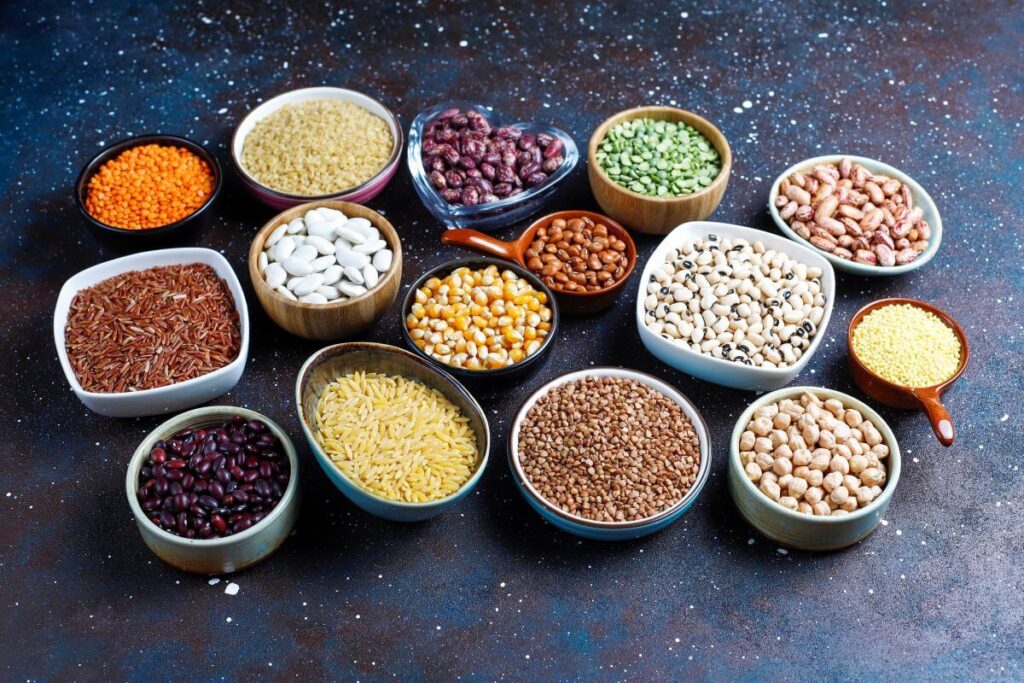Is Lectin the New Gluten? Unraveling the Truth

By Lisa Mikus, RD, CNSC, CDN
More often than not, I learn about new food trends from my curious clients. They ask me to research the trend to see what I think. So, when one of my clients asked me about the lectin-free diet, I started my search.
Lectin vs Gluten: What is Lectin? Is Lectin Gluten?
Yes, lectin-free sounds very similar to gluten-free. Molecularly speaking, lectin and gluten are both considered proteins. Gluten is a protein found in wheat, barley, and rye and associated with Celiac disease. But what exactly is lectin? Lectin is described as a “carbohydrate-binding protein” found in legumes, whole grains, beans, and vegetables. It seems that there are conflicting views on whether foods with lectin are dangerous to eat. Foods high in lectin include red kidney beans, tomatoes, wheat, peanuts, peas, and soybeans. Raw legumes have higher lectin levels than cooked legumes.
Is Lectin Really Bad For You?
The lectin-free diet trend was spearheaded by Dr. Steven Gundry who wrote “The Plant Paradox” in 2017 and claims that lectins can be dangerous for humans to consume and that they contribute to obesity and chronic inflammation. More specifically, Dr. Gundry links lectins to leaky gut syndrome and autoimmune disorders. On his website, he even offers a supplement named “Lectin Shield” so that you can consume foods with lectin without the alleged negative effects.
Lectin is classified as an anti-nutrient along with glucosinates, oxalates, phytates, saponins, and tannins because they have the ability to disrupt the absorption of calcium, iron, phosphorus, and zinc. As mentioned previously, raw legumes such as beans, lentils, peas, soybeans, peanuts and whole grains have high levels of lectin. These proteins protect plants in nature, but since they are hard for the human body to digest, they can cause issues when eaten in large quantities and if not prepared properly.
For example, there have been accounts of lectin toxicity when raw or undercooked kidney beans (which contain the lectin phytohaemagglutinin) were consumed. People experienced nausea and diarrhea. Yet, these symptoms can be easily avoided. Raw beans should be soaked and then boiled in water at a high heat as lectins are water-soluble. Using a slow cooker is not recommended for cooking raw beans. Canned beans have low levels of lectin because they are stored in liquid.
Going Lectin-Free: Avoiding Foods High in Lectins
Following a lectin-free diet is quite restrictive and does eliminate many foods that are commonly accepted as nutritious including whole grains, beans, and vegetables. Research has shown that consuming whole grains helps reduce the risk of heart disease, diabetes, and cancer. Whole grains, beans, and vegetables provide antioxidants that battle inflammation. These lectin-containing foods also provide our bodies with nourishing vitamins, fiber, and protein. There is budding research on the role of lectins in the cellular development of the gut wall in specific populations, in cancer treatment, and in diabetes management.
Should You Eat A Lectin-Free Diet?
It seems that going lectin-free would be particularly restrictive for vegans and vegetarians and those who have gastrointestinal issues such as constipation since the foods eliminated provide fiber essential for a regulated bowel regimen.
Ultimately, the message here is that too much of any food can cause nutritional imbalance even if it is a vegetable. Even though lectin-containing foods may block the absorption of other minerals, the overall evidence-based benefits of eating an appropriate amount of these foods, when cooked properly, offset the potential risks. Remember that balance is key and to ask your Registered Dietitian about the efficacy of any diet you see that is quickly gaining momentum.
References:
https://www.medicalnewstoday.com/articles/319593.php
https://www.ncbi.nlm.nih.gov/books/NBK22545/
https://www.hsph.harvard.edu/nutritionsource/anti-nutrients/lectins/
https://www.hsph.harvard.edu/nutritionsource/anti-nutrients/







